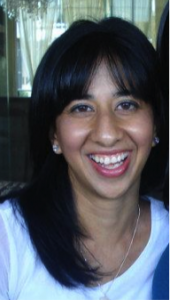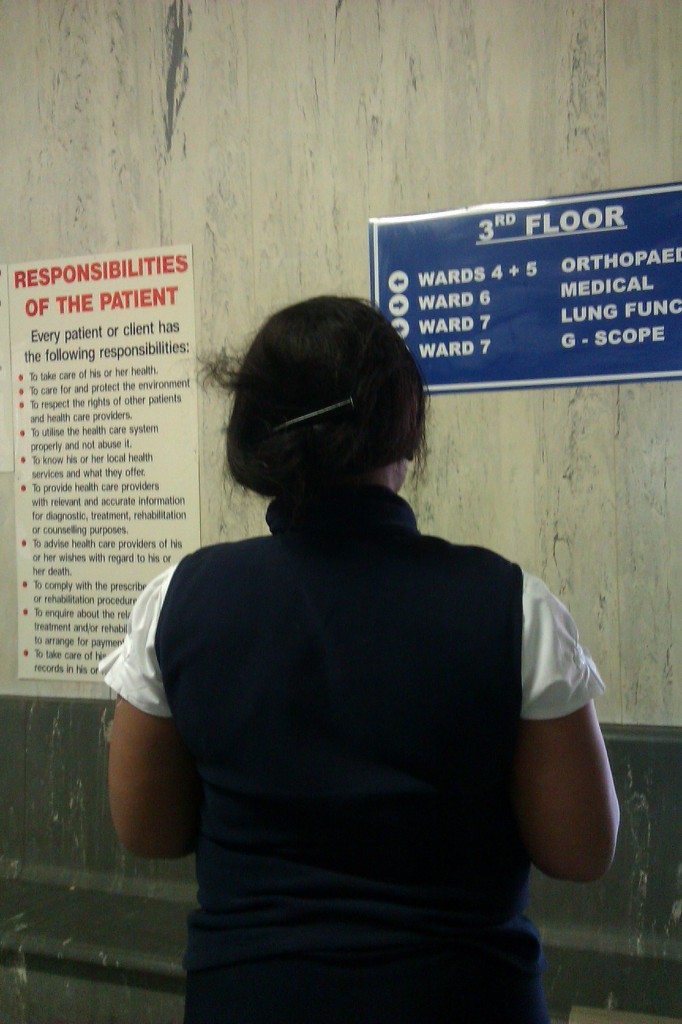
When I tell people that I still (voluntarily) work for the public health service, I am usually met with a dumbfounded stare. Then comes the question, “Why?â€. Seven years post graduation, I am no longer surprised at these reactions, nor do I blame anyone for responding this way. The common perception of the public sector is that of a failing system, a dysfunctional, poor quality healthcare delivered by truly unpleasant healthcare workers. And I won’t dispute that in many instances, this perception is true.
I have seen both sides of this story. I have seen the bad: The lack of equipment and drugs, the sheer exhaustion of health workers, the nurses who shout self- righteously at teenagers, the doctors who crudely deliver bad news. I have seen it and ashamedly, at times, I have seen it in myself.
But I have also seen the good in the system. I’ve seen the humanity, the selfless endeavour to help a fellow human being in need. I have seen this humanity embodied by the nurse that works with a baby on her back, whilst his critically injured mum is being treated. I’ve seen it in the doctors who work without food or sleep to operate on a seemingly endless stream of urgent cases; by the cleaning staff that mop up blood spill after blood spill in the dead of the night.
This is what keeps me in the public sector.
It is a hint of how things could be. I refuse to believe that thousands of people would pursue such a demanding career in a resource constrained public sector without some genuine drive to effect change. And I have seen some public health centres deliver excellent health care, despite all constraints they are faced with.
Consider the following scenarios:
A medical consultant marching in to a ward to berate me for reporting a fellow intern that was notorious for offloading work onto colleagues. The basis of his argument was that this intern was in his team and therefore could not possibly have done anything wrong. No investigation into the matter was done and no corroboration from fellow interns was sought, with the result being that my colleagues and I spent the next few months doing whatever work said intern “forgot†to do.
And on the other side of the coin, a trauma consultant at Chris Hani Baragwanath Hospital marching off to the radiology department clutching the X-ray request form I had showed him that had been unjustifiably denied and subsequently receiving beautifully done X-rays for the rest of my shift.
The glaring difference and most probably the reason why the Chris Hani Baragwanath trauma unit is so remarkable at delivering quality care under the tremendous burden of trauma that it receives, is accountability. The idea that anyone, regardless of title, position, seniority or political affiliation should be held accountable for their actions is somewhat foreign in our country, let alone our health service. Why is there no recourse, no serious repercussions for the health care worker that is opportunistically ill on every weekend shift. Why is there is no culture of accountability for administration staff that sell stolen medical certificates? Or, for the staff that moonlight in the private sector during service hours, or for the person responsible for non-payment to pharmaceutical companies leading to bad debt and subsequent stock outs?
This lack of accountability encourages such distasteful actions and demoralises the many hardworking people within the public service that either find that no solutions are forthcoming from their leaders and managers or are simply too scared to highlight the wrongdoing of their colleagues. And this is one of the empirical reasons why our public health sector is in the state it is in today.
So I leave you with this, South Africa… it’s time we, as a nation, stood up for ourselves and held people accountable. Whether it’s speaking up when a health care worker rude to you or fellow patients or asking for our leaders to be transparent in their usage of public funds, the buck stops with you.
Atiya Mosam is a proudly South African medical doctor that loves all things Jozi. She completed her medical degree in 2007 at the University of the Witwatersrand and works for the Johannesburg Metro District Health Services at Mofolo Community Health Centre in Mofolo, Soweto. She is currently completing her Masters in Public Health in the field of Policy and Management and aspires to contribute towards health for all South Africans through health system strengthening. Her passion for social upliftment extends beyond her career and she is currently chairperson of ReDineo (an organization providing scholarships, mentorship and leadership skills to high school learners) as well as serving on the executive committee of Iexist (an organization focusing on social sustainability projects).









